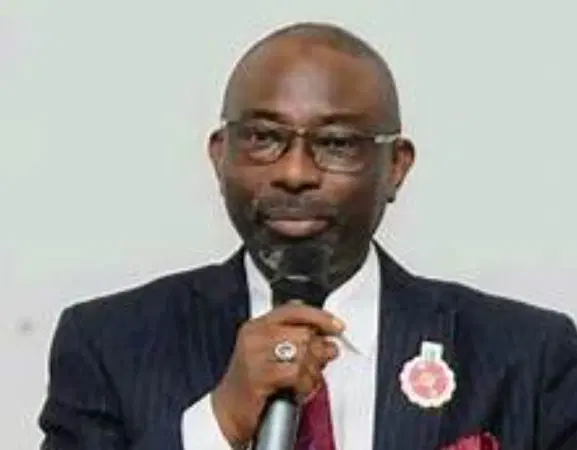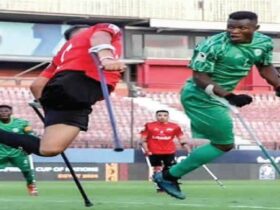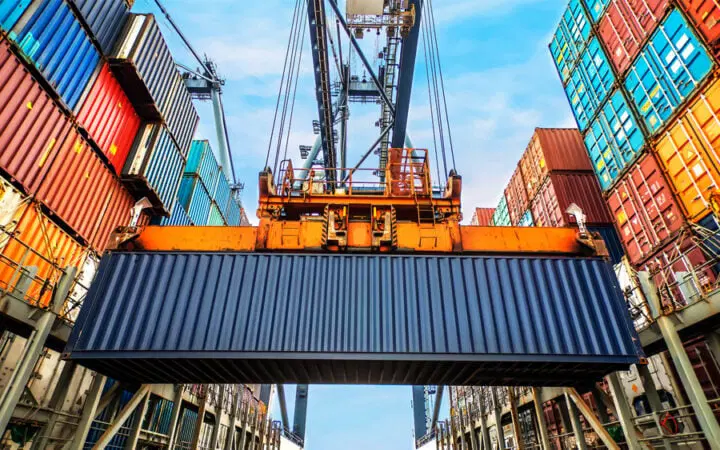Lagos Attorney General Pedro Sounds Alarm: Ignoring Supreme Court Rulings Puts Federalism at Risk

In this in-depth discussion, Mr. Lawal Pedro, SAN, who serves as the Attorney-General and Commissioner for Justice of Lagos State, reflects on his impactful two-year leadership period.
He addresses a spectrum of pressing topics, including the ongoing contempt case involving the National Assembly, the impressive recovery of N1.5 billion in tax arrears, landmark legal prosecutions, initiatives to curb land grabbing and human trafficking, and the direction of legal reforms in Nigeria’s most populous and economically dynamic state.
How would you summarize your journey as Lagos State’s Attorney-General and Commissioner for Justice over the past two years?
These two years have been a mixture of demanding challenges and notable achievements. Since my appointment by Governor Babajide Sanwo-Olu in 2023 and confirmation by the House of Assembly, I have been acutely aware of the weight of this office. Lagos is not just any state; it is the economic heartbeat of Nigeria and West Africa, where the expectations for efficient governance and justice delivery are exceptionally high.
Our mission has been to revamp the Ministry of Justice to meet these high standards. We have improved service efficiency, accelerated access to justice, strengthened financial governance, and expanded reforms across both civil and criminal justice systems. Various state Ministries, Departments, and Agencies (MDAs) now enjoy faster legal advisory support, smoother contract processing, and enhanced justice accessibility. Although challenges persist, the progress made confirms that we are moving in the right direction.
The lottery controversy has attracted widespread attention. Could you explain why Lagos is taking legal action against the National Assembly?
The Supreme Court’s decisive ruling clarified that lotteries and gaming fall under the residual powers of the states, not the federal government. This judgment was crucial as it affirmed the constitutional right of states to regulate these activities within their territories and protected Lagos’ capacity to generate revenue from them-an essential element of our fiscal independence.
Despite this clear legal position, the House of Representatives recently passed a Central Gaming Bill seeking to centralize lottery regulation at the federal level. This legislation is unconstitutional and directly contradicts the Supreme Court’s ruling. As a result, Lagos has initiated contempt proceedings against the National Assembly, focusing particularly on the House of Representatives.
The fundamental issue is simple: all government bodies in Nigeria must respect Supreme Court decisions. Lagos will not tolerate any erosion of constitutional rights. This dispute goes beyond lotteries; it is about preserving fiscal federalism and ensuring no tier of government dominates another.
Some view this as a clash with the federal legislature. What is your perspective?
This is not a conflict for conflict’s sake but a defense of constitutional governance and the rule of law. Lagos advocates for cooperative federalism, but such collaboration must respect constitutional boundaries. The Senate, within its legislative authority, should limit the Central Gaming Bill’s scope to the Federal Capital Territory, Abuja.
When the highest court has spoken, all institutions, including the National Assembly, are bound to comply. Disregarding Supreme Court rulings threatens the very pillars of democracy.
Revenue recovery has been a major focus. What achievements can you highlight?
Strengthening fiscal governance through legal frameworks has been a cornerstone of our strategy. We established specialized Revenue Courts at both High Court and Magistrate levels, alongside a dedicated Revenue Recovery Unit within the Ministry. These measures have yielded tangible results. Numerous companies with outstanding tax debts have responded positively to pre-litigation notices. A standout success was the recovery of N1.5 billion in overdue taxes from a commercial bank. Several others have reached settlement agreements. Our approach balances assertiveness with fairness-we are not targeting businesses unjustly but ensuring Lagos collects rightful revenues to fund vital public services.
The Bamise BRT tragedy deeply impacted Lagos residents. How did your office secure justice in this matter?
The incident was both heartbreaking and disturbing. Oluwabamise Ayanwole was fatally attacked by a BRT driver, Andrew Nice, after boarding a state-operated bus. This event shook public confidence. We were determined to deliver justice transparently. The prosecution presented compelling evidence, culminating in a conviction. This verdict sends a strong message: no one is above the law, and Lagos is unwavering in its pursuit of impartial and decisive justice.
What legal reforms have you spearheaded during your tenure?
Several transformative bills have been introduced to the Lagos State House of Assembly. One is the new Tenancy Law, designed to redefine landlord-tenant relationships by requiring agent registration, limiting rent arrears, and simplifying premises recovery through originating summons. This legislation aims to resolve tenancy disputes within three to six months, reducing court misuse and fostering a more investor-friendly environment for real estate and affordable housing.
Another significant proposal is the Registration of Marriages (Except Marriages under the Act) and Dissolution Bill. If passed, Lagos would become the first Nigerian state to officially register customary, Islamic, and Christian marriages, issuing government-recognized certificates that provide legal proof beyond oral claims.
The Administration of Civil Justice Bill is also under review. It seeks to curb prolonged trials by introducing case management protocols, document-based hearings, sanctions for frivolous litigation, and cost reimbursements for adjournments. This reform aims to resolve civil cases within 18 to 24 months, improving access to justice and creating a more predictable legal environment conducive to business growth.
What strides have been made in criminal justice reform?
We have expanded the plea bargain system, approving 314 out of 361 applications, which has expedited case resolutions, reduced court congestion, and decreased the number of awaiting-trial inmates. To enhance logistics, the government provided two specially equipped buses for inmate transportation to courts.
Additionally, the governor exercised the prerogative of mercy on our recommendations, releasing 263 inmates who had served significant sentences and demonstrated rehabilitation. This initiative is not about leniency but a strategic effort to decongest correctional facilities and offer reformed offenders a second chance.
Restorative justice has also been emphasized. Our dedicated unit managed 348 cases, resolving 192 through reconciliation and restitution, while 111 proceeded to court. This approach empowers victims and supports offender reintegration.
The Lagos Criminal Information System (LCIS) now holds biometric data and case records for over 79,000 defendants, including those involved in EFCC cases. This system enhances transparency, coordination, and long-term planning for criminal justice reforms.
Property rights and land grabbing remain urgent issues. What measures have you implemented?
Protecting property rights is vital for investor confidence. Over the past two years, I have authorized the Governor’s consent for 738 deemed land grants and 810 regularization files, solidifying ownership claims.
Our taskforce against land grabbing has been proactive, receiving 982 petitions and verifying 124 as legitimate cases, with offenders prosecuted under the Lagos Property Law. Earlier this year, we held a summit in Eti-Osa with traditional rulers, legal experts, and community leaders to reinforce our zero-tolerance policy. Lagos residents must understand that illegal land seizures and self-help actions will not be tolerated.
Human trafficking poses a serious challenge. How is your office tackling it?
When I assumed office, the Lagos State Task Force Against Human Trafficking was dormant. We have revitalized it, equipping the team with an operational vehicle and collaborating closely with NAPTIP, Police, Immigration, and civil society organizations. The task force now responds swiftly to rescue operations, conducts regular monitoring, and coordinates anti-trafficking efforts across the state. For example, on September 12, seven Nigerian victims trafficked to Ghana for sexual exploitation were rescued, repatriated, counseled, and had their cases documented.
Staff welfare is often overlooked. What enhancements have been made for your legal team and support staff?
The efficiency of the justice system depends on its workforce. We have prioritized staff welfare by organizing the first junior staff retreat in a decade and planning a three-day retreat for senior management. Litigation and robe allowances have been disbursed, five new buses were acquired for court duties, and a new elevator was installed, ensuring two operational lifts in the Ministry.
Moreover, we secured staff housing within the new Magistrates’ Quarters in Ketu to ease accommodation challenges. For career advancement, agencies such as the Office of the Public Defender and the Citizens Mediation Centre have been elevated to Bureau status, led by permanent secretaries, thereby creating more senior leadership roles within the Ministry.
Looking forward, what can Lagosians expect from your office?
Lagosians can look forward to a justice system that continues to evolve, grounded in integrity, innovation, and measurable impact. While we have made considerable progress, much remains to be done. We are dedicated to safeguarding citizens’ rights, ensuring accountability, and delivering justice efficiently.
The future will emphasize deepening reforms, strengthening public confidence in the judiciary, and reinforcing fiscal autonomy. Justice in Lagos is not just an aspiration but a dynamic catalyst for governance and societal progress-a legacy I am committed to advancing.







